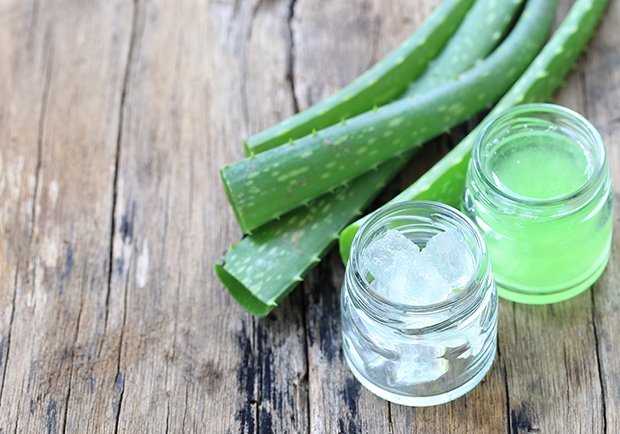What Is the Difference Between Acne Blackheads and Whiteheads?
Acne blackheads and whiteheads are two types of blemishes that commonly occur during adolescence. Both blackheads and whiteheads are caused by a build-up of oil and dead skin cells in the pores, which can become clogged. However, there are some key differences between these two types of blemishes.
Blackheads are small, dark bumps that form when the pores become clogged with oil and dead skin cells. The dark color is due to the oxidation of the oils in the pores. Blackheads are considered to be a mild form of acne and can often be treated with over-the-counter medications.
Whiteheads, on the other hand, are small, white bumps that form when the pores become clogged with oil and dead skin cells. The white color is due to the accumulation of pus in the pores. Whiteheads are considered to be a more severe form of acne and often require prescription medications to treat.
If you are suffering from either blackheads or whiteheads, it is important to see a dermatologist for treatment. A variety of over-the-counter and prescription medications are available to help clear the skin and prevent new blemishes from forming.
What are the symptoms and signs of acne blackheads and whiteheads?

Acne blackheads and whiteheads are small, dark or white bumps that form when the pores become clogged with oil and dead skin cells. The bumps can be painful and may be accompanied by redness, swelling, and itching. If the blemishes become infected, they may also produce pus. acne blackheads and whiteheads are considered to be a mild form of acne.
What are the causes of acne blackheads and whiteheads?
Acne blackheads and whiteheads are caused by a build-up of oil and dead skin cells in the pores. The oils in the pores can become oxidized, which gives them a dark color. Dead skin cells can also accumulate in the pores, which can cause them to become clogged.
What are the risk factors for acne blackheads and whiteheads?
Acne blackheads and whiteheads are most common in adolescents, but they can occur at any age. They are more likely to occur in people with oily skin. Acne blackheads and whiteheads may also be more likely to occur in people who have a family history of acne.
How are acne blackheads and whiteheads diagnosed?
Acne blackheads and whiteheads are typically diagnosed based on a physical examination. A dermatologist will look at the skin to determine the type of blemish present. If the bumps are large or inflamed, a biopsy may be performed to rule out other conditions.
How are acne blackheads and whiteheads treated?
Acne blackheads and whiteheads can often be treated with over-the-counter medications. These medications typically contain benzoyl peroxide or salicylic acid, which can help to clear the pores and reduce inflammation. If the blemishes are large or inflamed, a dermatologist may prescribe a stronger medication, such as an antibiotic or retinoid.
Can acne blackheads and whiteheads be prevented?
There is no sure way to prevent acne blackheads and whiteheads. However, some people may be able to reduce their risk by washing their face twice daily with a mild soap or cleanser. It is also important to avoid picking or squeezing the blemishes, as this can lead to infection.
Top Difference Between Blackheads and Whiteheads
Blackheads are small, dark bumps that form when the pores become clogged with oil and dead skin cells. The dark color is due to the oxidation of the oils in the pores. Blackheads are considered to be a mild form of acne and can often be treated with over-the-counter medications.
Whiteheads, on the other hand, are small, white bumps that form when the pores become clogged with oil and dead skin cells. The white color is due to the accumulation of pus in the pores. Whiteheads are considered to be a more severe form of acne and often require prescription medications to treat.
Which ayurvedic medicine good for Acne?
There are a variety of ayurvedic medicines that can be used to treat acne. Some of these include aloe vera gel, neem oil, and turmeric. Ayurvedic medicine is a holistic approach to medicine that focuses on the mind, body, and spirit. It is important to consult with an ayurvedic practitioner before starting any new medication.
Acne Blackheads and Whiteheads Frequently Asked Questions
1. What are the symptoms and signs of acne blackheads and whiteheads?
Acne blackheads and whiteheads are small, dark or white bumps that form when the pores become clogged with oil and dead skin cells. The bumps can be painful and may be accompanied by redness, swelling, and itching. If the blemishes become infected, they may also produce pus. acne blackheads and whiteheads are considered to be a mild form of acne.
2. What are the causes of acne blackheads and whiteheads?
Acne blackheads and whiteheads are caused by a build-up of oil and dead skin cells in the pores. The oils in the pores can become oxidized, which gives them a dark color. Dead skin cells can also accumulate in the pores, which can cause them to become clogged.
3. What are the risk factors for acne blackheads and whiteheads?
Acne blackheads and whiteheads are most common in adolescents, but they can occur at any age. They are more likely to occur in people with oily skin. Acne blackheads and whiteheads may also be more likely to occur in people who have a family history of acne.
4. How are acne blackheads and whiteheads diagnosed?
Acne blackheads and whiteheads are typically diagnosed based on a physical examination. A dermatologist will look at the skin to determine the type of blemish present. If the bumps are large or inflamed, a biopsy may be performed to rule out other conditions.
5. How are acne blackheads and whiteheads treated?
Acne blackheads and whiteheads can often be treated with over-the-counter medications. These medications typically contain benzoyl peroxide or salicylic acid, which can help to clear the pores and reduce inflammation. If the blemishes are large or inflamed, a dermatologist may prescribe a stronger medication, such as an antibiotic or retinoid.
6. Can acne blackheads and whiteheads be prevented?
There is no sure way to prevent acne blackheads and whiteheads. However, some people may be able to reduce their risk by washing their face twice daily with a mild soap or cleanser. It is also important to avoid picking or squeezing the blemishes, as this can lead to infection.



